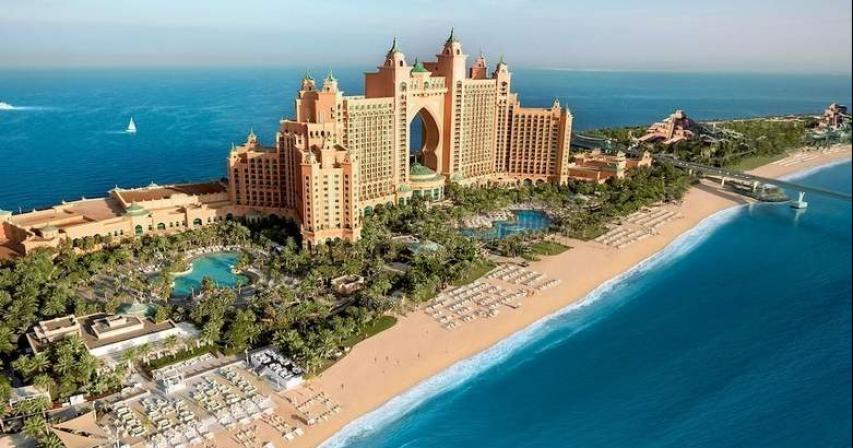UAE's tourism, hospitality industry to benefit from new regulations

The announcement of the 10-year residency visas for investors and specialists, will pave the way for more medical professionals to come to the UAE, experts detailed.
Speaking to Khaleej Times about the announcement, and how it will accelerate the growth in the country's medical industry, Dr. Thumbay Moideen, founder and president of Thumbay Group, said: "The 10-year visas for specialist professionals like doctors and researchers will attract the best talent to the country, hugely benefiting the healthcare sector. Moreover, the move will also attract the best student talent to the country."
He also revealed that investments in the healthcare sector are also expected to surge, attracted by the new decisions of 100 per cent foreign ownership and 10-year residency visas for investors. "This will in turn bring in more medical tourists, considering that the UAE is already transitioning into a popular medical tourism hub."
Anthony Hobeika, chief executive officer at MENA Research Partners, noted that increasing healthcare costs in Western countries are the primary drivers of growth in the medical tourism sector in the Middle East.
"Dubai and Abu Dhabi are the main cities to attract medical tourism due to their large network of international hospitals," he said. "Advanced healthcare centres and research departments allow Dubai and Abu Dhabi to be ranked the 16th and 25th position globally on the medical tourism index respectively."
According to Knight Frank's Hub Report, as per the medical tourism index, Dubai continues to strengthen its position as a medical tourism destination, ranking first in the Mena region. By 2020, the emirate is targeting 500,000 medical tourists from 325,000 in 2016, representing a CAGR of 11.3 per cent.
The increase in demand for healthcare services in the emirate over the past 10 years was spurred by population growth, increase incidence of life style related medical conditions, and medical tourism. The government is supporting this growth by creating an investor friendly environment, ensuring transparency, establishing a healthcare free zone, and introducing mandatory insurance to name a few initiatives.
Over the last five years, the knock on effect of these changes has resulted in the number of hospital beds increasing from 1,448 in 2012 to 2,434 beds in 2016, registering at CAGR of 13.7 per cent, and shifting contribution by the private sector from 41 per cent to 53 per cent over the same period. Experts note that there is significant potential for growth in the emirate's healthcare sector.
Shehzad Jamal, partner, Development Consulting: Healthcare & Education, Knight Frank, said that the market is becoming increasingly sophisticated and speciality driven due to higher degrees of awareness in the domestic market and medical tourism demand. "As a result, the market is seeing a shift in demand from general hospitals towards specialty hospitals, such as orthopaedic, long-term care facilities, and mother and child."
The UAE's hospitality industry will receive a significant boost in the coming months with the recent announcement of the 10-year residency for investors and specialists, hospitality experts said.
Iftikhar Hamdani, cluster general manager, Ramada Hotel & Suites Ajman and Ramada Beach Hotel Ajman and Wyndham Garden Ajman Corniche, said that the decision will make the UAE an even more attractive financial hub.
"This move is remarkably beneficial to the hospitality industry and the economy as whole, as it will further draw businesses ranging from global corporations to SMEs to conduct business in the UAE. The decision was announced at a right time, as the UAE prepares for the World Expo 2020, and will cement UAE's long-term commitment to growth and innovation, beyond the expo years," he said.
Similarly, Mark Fernando, GM of Ramada Downtown Dubai, said: "This landmark initiative is poised to bring in significant growth to the UAE economy as more investors will start to enter the market, which will result in more employment opportunities, trade deals, and for us in the hospitality industry, this will generate increased tourist arrivals from all segments including leisure and business travels."
Ammar Kanaan, GM of Central Hotels, described the announcement as a "very big step in the right direction."
"It will definitely attract more investors to invest in the UAE especially people who wish to invest in the hospitality business in terms of owning restaurants or hotels. It will also attract more people to visit and stay here - in particular professionals and students who can pursue their education without bothering about the visa status. We hope to see a broader spectrum of professionals included in the new scheme in future. It will be wonderful if hospitality professionals who have been staying for a long time in the country will be eligible for 10-year residency visas or given more time in between job transitions than the current 30 days," he said.
The tourism industry in the Middle East and North Africa (Mena) region is expected to reach $350 billion by 2027, according to MENA Research Partners (MRP). The UAE and Saudi Arabia are expected to grow at a CAGR of five per cent over the next 10 years. Currently, the UAE and KSA account for around 50 per cent of the Mena tourism market.
Leisure tourism generated approximately $115 billion to the region in 2017, with Dubai attracting 15 million visitors in 2017 and being ranked as the sixth most visited city in the world. The UAE is expected to account for 90 per cent of leisure tourism in the area following the opening of multiple leisure attractions.
Laurent A. Voivenel, SVP of Operations and Development for the Middle East, Africa and India for Swiss-Belhotel International, noted that the 10-year residency visa for certain professionals and students will definitely boost tourism, as much as it will help the growth of the respective sectors by attracting higher number of people.
"The market opportunity associated with this decision is massive with significant economic dividends including increase in repeat visits from relatives and friends of people residing in the UAE, growth of staycations, and greater spending, all of which will prove to be beneficial for hotels. From students and professionals perspective too - it will cut costs to visa applicants, both the direct monetary cost and indirect costs such as waiting time and travel expenses associated with obtaining visa which is often a deterrent for people to travel," he said.
Samir Hamadeh, GM of Alpha Destination Management, added that in light of the new announcement, the travel industry will significantly benefit from the new regulations with a profound increase in tourism related to education and other defined sectors. "We believe that certain sections of tourism are primed for accelerated growth and this historic decision will open new opportunities for the entire industry."
Koray Genckul, senior director of Human Resources, Middle East, Africa & Turkey, at Hilton, said that the move will not only reinforce the UAE as a primary destination for international investors and travelers, and boost the overall economy, but it will also make a significant impact in attracting and retaining talented professionals. "Tourism growth plans in the region mean that attracting, retaining and supporting the best people in a competitive market is crucial."
This article is copyrighted and belongs to khaleej Times. The article is written by Rohma Sadaqat and the article is not edited by Just Dubai staff.
By: Rohma Sadaqat / Source: Khaleej Times






Comments